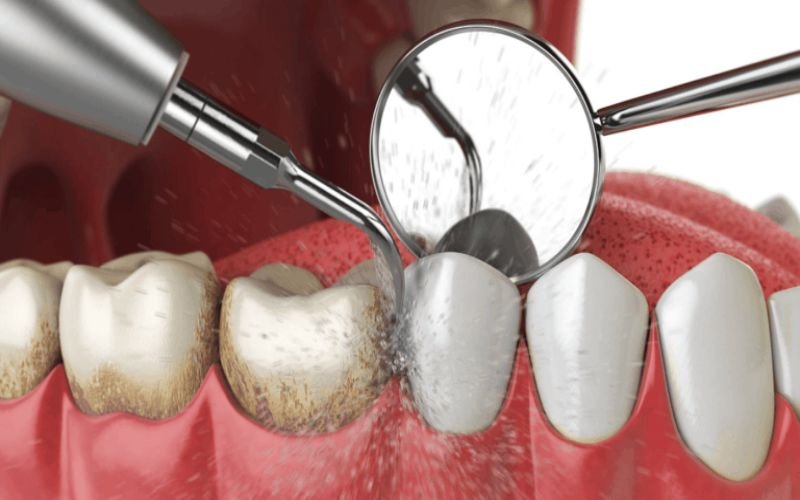
Menu
Teeth Cleaning
What is Teeth Cleanings?
Teeth cleanings, also known as dental cleanings or prophylaxis, are routine dental procedures performed by a dental hygienist or dentist to remove plaque, tartar, and stains from the teeth. Regular cleanings are essential for maintaining good oral hygiene, preventing gum disease, and ensuring overall dental health.

Components of a Teeth Cleaning Appointment:
Examination:
- The dental professional begins by examining your teeth and gums for any signs of dental issues, such as cavities, gum disease, or other abnormalities.
Plaque and Tartar Removal:
- Scaling: Using specialized instruments, the dental hygienist or dentist removes plaque (a soft, sticky film of bacteria) and tartar (hardened plaque) from the surfaces of the teeth, particularly along the gum line and between teeth.
- Ultrasonic Scalers: Some practices use ultrasonic devices that use vibrations and water to help dislodge and remove plaque and tartar.
Polishing:
- After scaling, the teeth are polished using a gritty toothpaste and a rotating brush or rubber cup. Polishing helps remove surface stains and leaves the teeth smooth and shiny.
Flossing:
- The hygienist or dentist flosses between the teeth to remove any remaining plaque and to ensure that the spaces between teeth are clean.
Rinsing:
- You may be given a fluoride rinse to help strengthen the enamel and provide additional protection against cavities.
Fluoride Treatment (optional):
- A fluoride treatment may be applied to the teeth to help strengthen tooth enamel and prevent cavities. This is usually done as an additional step, depending on your individual needs and preferences.
Benefits of Regular Teeth Cleanings:
- Prevents Tooth Decay: Regular cleanings help remove plaque and tartar that can lead to cavities.
- Prevents Gum Disease: By removing plaque and tartar, cleanings help prevent gingivitis and more severe forms of gum disease, such as periodontitis.
- Reduces Bad Breath: Cleanings help eliminate the buildup of bacteria and food particles that can cause bad breath.
- Improves Oral Health: Regular cleanings contribute to overall oral health, helping to keep teeth and gums in good condition.
- Detects Issues Early: Routine cleanings often include an examination that can help identify dental problems early, allowing for timely treatment.
Frequency of Teeth Cleanings:
- Most dentists recommend having a professional teeth cleaning every six months. However, individuals with specific dental concerns or conditions, such as gum disease, may need more frequent cleanings.
Considerations:
- Sensitivity: Some people may experience temporary tooth sensitivity or gum tenderness after a cleaning, which usually resolves on its own.
- Cost: Cleanings are typically covered by dental insurance, but it’s a good idea to check with your insurance provider to understand your coverage.